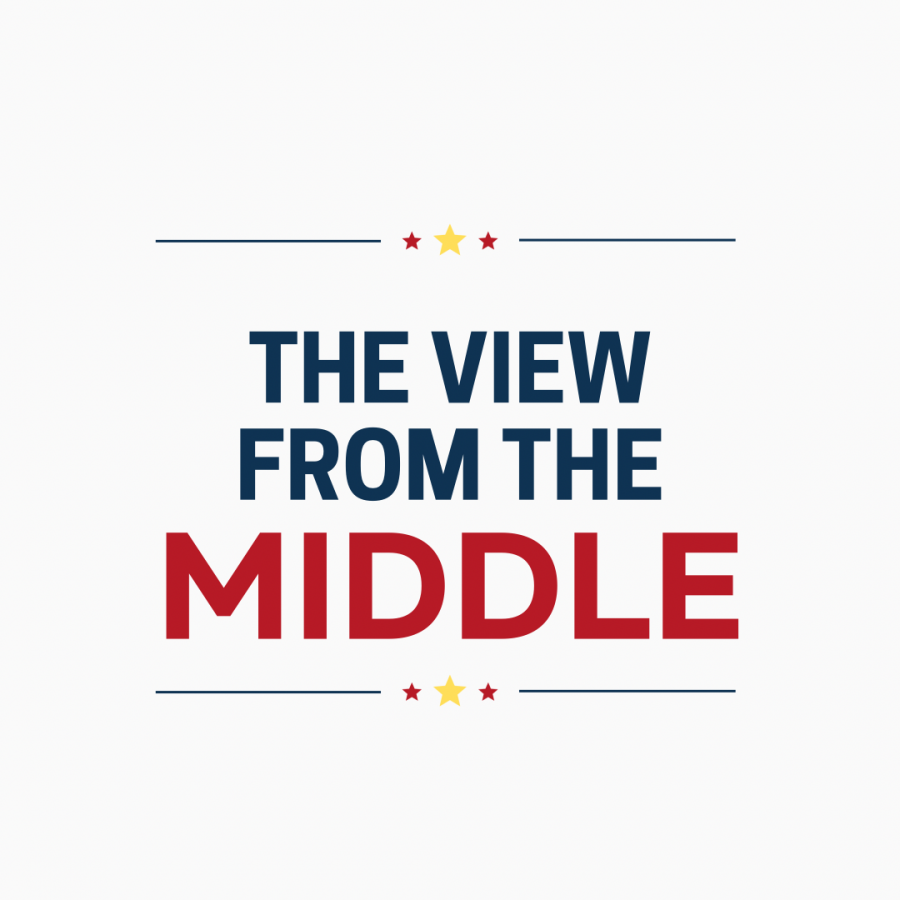A View From The Middle: A Catalyst for Independent Politics
November 5, 2021
Since the birth of our nation, the political world of the United States has consisted of two major political parties: the left (Democrats) and the right (Republicans). The parties, although opposite, are still 2 hands of the same capitalistic society, one that many people are starting to not trust. A presidency that collectively aims to achieve the best for every aspect of society will give America justice, arguably this cannot exist under the confinements of the parties.
This column’s point is to show the voice of the people who don’t align themselves with modern political parties, not the left or the right but the middle. This column hopes to achieve a change in conversation, a new way to see things. Life isn’t just black and white, not every answer is 100% correct, there are factors that play in every aspect of society, and including these factors into conversations about our government is important.
Political parties and their representatives are frequently criticized for their false promises and lack of transparency. The word of the politician has slowly transformed into digital performance, which causes their truthfulness to be questioned by potential voters. Politicians have the power to present an image online that may not accurately portray them. This ancient wave of presidential performance has expanded with bigger coverage. Since technology has become more advanced we have a bigger view of politicians’ lives, or at least what they let us see, but we cannot know who they truly are as individuals.
Public trust in the federal government has slowly eroded to the point of record lows. According to the Pew Research Center only “…20% of U.S. adults say they trust the government to do the right thing.” As society slowly begins to lose trust in the faces of our government, more people ask questions that spotlight all the issues in our society, even the ones that have been hidden for centuries.
Presidential candidates have long been accused of saying only what their voters want to hear. For example, former President Donald Trump first registered as a Republican in 1987; since that time, he has changed his party affiliation five times. In 1999, Trump changed his party affiliation to the Independence Party of New York. In August 2001, Trump changed his party affiliation to Democratic. In September 2009, Trump changed his party affiliation again, back to the Republican Party. In December 2011, Trump changed to “no party affiliation” (independent). Finally, in April 2012, Trump returned to the Republican Party. One can argue that politicians aren’t loyal to a singular party, they are only loyal to winning. This is where society’s trust issues begin, our government seems to have become more of a job, than a position of leadership.
Important issues citizens voted on to have fixed aren’t resolved, issues that affect a large amount of people. For example, last February the Biden administration promised to deliver economic relief to Americans if the Democratic Party won Georgia, he endorsed sending $2,000 stimulus checks to qualifying individuals and households. Yet it didn’t happen, we didn’t get the $2,000 stimulus, instead, checks for 1,400 dollars were delivered.
When presidential candidates go back on their word, people’s opinions begin to move away from favoring them and shift into a stand of distrust. More and more people are starting to think that a better government is one that isn’t shifting. With more people moving to independent politics, we start to see an important shift in conversation.
Stay tuned for future articles!

